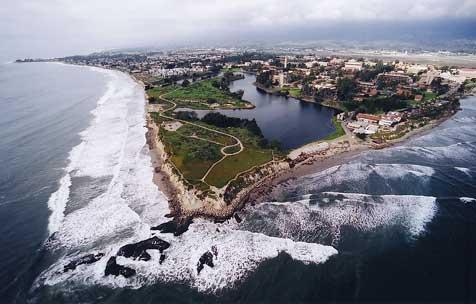Opposition Rises to New UC President
Students and Workers Question Appointment of Former Homeland Security Czar Janet Napolitano

The recent appointment of former Department of Homeland Security Secretary Janet Napolitano as the new president of the University of California sparked vocal opposition by some UC faculty and students. The UC Student-Workers Union, also known as UAW Local 2865, was among the chief opponents.
UAW Local 2865 — which represents more than 12,000 academic student employees including teaching assistants, readers, and tutors— claimed in a statement that the selection process occurred in a “clandestine fashion” and “shut out public involvement.” A special search committee nominated Napolitano from a pool of 300 candidates six days before the regents voted her into office as the first female to head the UC, a position that will begin in late September.
The union’s complaints are two-fold: first, that Napolitano announced her plan to resign from her position as DHS secretary before the regents even voted on her nomination. The process occurred secretively and through “top-down political and business deals forced onto the UC community after the fact,” according to a statement released by the union last week. The second is that Napolitano lacks higher-education experience and instead has an extensive background in surveillance, cyber-security, and border controls.
UCSB graduate student and UAW 2865 member Earl Perez-Foust said it is “completely inappropriate to appoint someone with a police background because of past police violence on UC campuses.” Referring to November 2011 protests at UC Davis and UC Berkeley, where UC police used pepper spray and batons against student demonstrators, Perez-Foust worries that Napolitano — like outgoing UC president Mark Yudof — will increase an intimidating police presence on campuses in response to student activism. “It is completely out of step with what we expect from a public institution,” he said.
In response to the union’s complaints about Napolitano’s law-enforcement background, UC Office of the President spokesperson Steve Montiel said in an email, “The search committee wasn’t looking for someone to run campus police departments or enforce immigration policies. It was looking for someone with the leadership talent needed to move a very large, complicated, and essential institution forward.” He added that the process for selecting the UC president has been in place for a long time and involved input from advisory groups of faculty, students, and alumni. “If it were not a confidential process, there are many potential candidates who would not participate while being employed by another institution,” he added.
UCSB Chancellor Henry Yang said in an email that he is confident that Napolitano’s strong track record and commitment to education will help ensure that University of California will continue to be “the envy of the world.” He said he looks forward to introducing Napolitano to the unique and extraordinary UCSB community.
Despite assurance from the UC officials that Napolitano is qualified to run the complex 10-campus research university system, UCSB English Professor Christopher Newfield also questioned the regents’ choice. “Universities are the opposite of detention centers,” he posted on his Blog Spot site “Remaking the University.” He believes her DHS portfolio is almost a disqualification in itself.
Calling Napolitano “U.S. history’s champion deporter,” Newfield also mentioned that much of her career dealt with counterterrorism, defense weaponry, and immigration enforcement. “Universities used to be bastions against political influence, and now they aren’t,” he said. “[Now], there is no communication between rank-and-file faculty and the administration.”
To defend herself against critics, Napolitano referenced her vocal support for the DREAM Act (Development, Relief, and Education for Alien Minors), her implementation of the Deferred Action program — which provides some undocumented students and young veterans with a two-year respite from deportation — and her 20-year career as a public servant in which she advocated for academia, according to an online article in EdSource Today.
Napolitano also secured $1 billion for new facilities in Arizona’s universities, increased state funds for federal aid, and approved a salary increase for key professors to keep them at the state’s universities, during her two-term governance in Arizona, according to the Los Angeles Times.
“Now that the decision is over and done, we need to get real answers to the major questions,” Newfield posted. These questions appear on his site and include hot topic issues like public funding, the benefits of online courses, and the impact of on-campus protests.
“I should make clear that I, like basically everyone else, have no idea what sort of President Janet Napolitano will make in the end,” fellow Napolitano skeptic and UCLA History Professor Michael Meranza posted on the blog. “But that is precisely the problem.”
Napolitano undoubtedly faces a tough crowd of students and faculty who will hold her accountable for this next chapter of her career.


